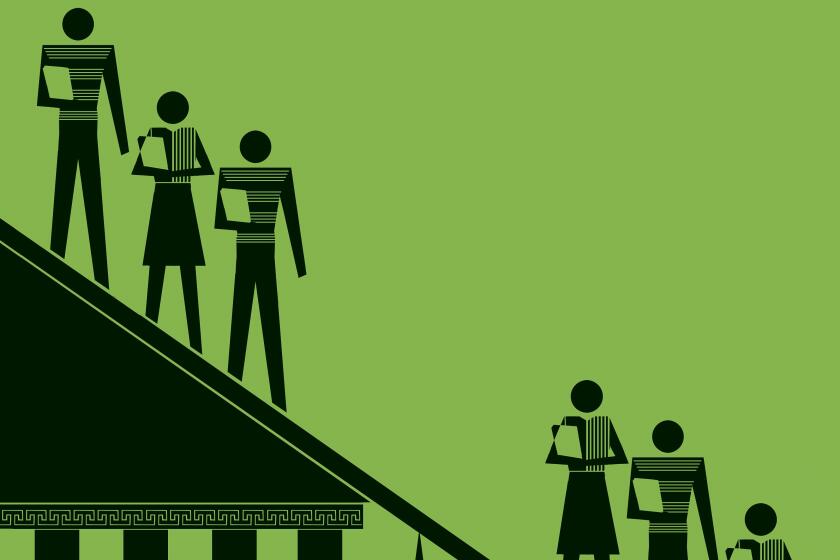
Educational inequalities
Education as the Great Equalizer
Education is often hailed as the great equalizer, a powerful catalyst for personal and social development. However, severe and persistent inequalities in educational access and outcomes pose significant challenges to achieving true equality and social progress. This article explores the multifaceted issue of educational disparities, exploring its root causes, broad implications, and ongoing efforts to close the opportunity gap and create a more equitable educational landscape.
For example, significant differences between student populations of different backgrounds in college enrollment rates, college graduation rates, test scores, academic achievement, major selection, access to advanced classes and qualified teachers, and There is availability of sufficient educational materials.

The complex network of educational inequalities
Socio-Economic Inequality:
At the heart of educational inequalities lies socio-economic inequality. Economically disadvantaged children often face multiple barriers to quality education, such as inadequate resources.
Geographical Inequalities:
Educational opportunities vary widely based on geographic location. Rural areas, marginalized communities, and disadvantaged urban neighborhoods often suffer from inadequate educational infrastructure.
Gender inequality:
Gender inequalities exist in many parts of the world. Girls in particular face cultural norms, early marriages, and safety concerns on their way to school, which make it difficult for them.
The unforgivable consequences of educational inequalities
Economic inequality:
Educational inequality plays an important role in perpetuating economic inequality. Those with limited access to quality education often have fewer opportunities for well-paying jobs, trapping them in cycles of poverty.
Social Inequality:
Educational inequities reinforce social inequalities that lead to unequal opportunities, limited access to resources, and reduced social mobility. This in turn deepens the divide in society.
Global competition:
Global Competitiveness: Countries that fail to provide equal educational opportunities risk losing their competitive advantage in the global economy. An educated population is a valuable asset for the development, innovation, and economic growth of a country.
Health and well-being:
Education is closely related to health outcomes. People with limited access to quality education are more likely to experience health inequities, including reduced overall well-being.
Efforts to eradicate educational inequalities
- Equitable Funding: Achieving equitable funding for schools in disadvantaged areas is critical.
- Quality teachers: Recruiting, training, and retaining qualified teachers is essential, especially in underserved areas.
- Early Childhood Education: Expanding access to quality early childhood education programs can help level the playing field and ensure that all students begin their educational journey with a strong foundation.
-
Girls education: Promoting girls’ education and removing gender barriers are critical steps to achieving gender equality and reducing educational disparities.
- Cultural sensitivity: Creating culturally sensitive curricula and supporting students from diverse backgrounds can increase inclusion and reduce cultural barriers to education.
- Data collection and accountability: Continuous data collection on educational inequities and accountability of educational institutions and policymakers is critical to measuring progress and ensuring that policies and initiatives are effective.
Conclusion
Educational inequalities continue to represent a major challenge that affects the potential and well-being of individuals and societies. However, with concerted efforts and an unwavering commitment to providing quality education for all, these disparities can be addressed. Governments, communities, and individuals must join forces to ensure that education becomes an inalienable right and leads to a more inclusive, just, and hopeful future for all.
Reference
https://en.wikipedia.org/wiki/Educational_inequality
https://onlinelibrary.wiley.com/doi/abs/10.1111/j.0036-9292.2004.00304.x
Leave a Reply